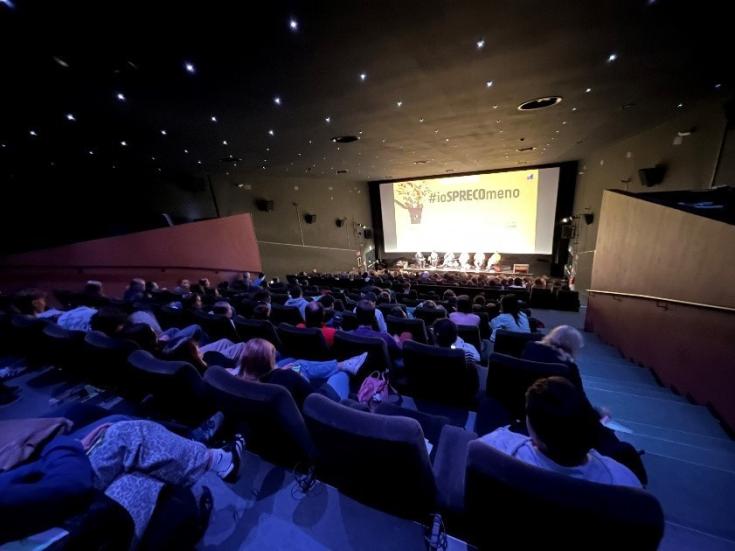#iWASTEless: A Youth Awareness Campaign Against Food Waste
On September 27, 2024, an engaging event was held in Bolzano aimed at raising awareness about food waste among high school students. As part of the #iWASTEless campaign, the initiative recognized the importance of empowering youth to take action against food waste, leveraging their receptiveness to new information.
Event Highlights
The day commenced with a presentation of the CORE Project, focusing on food waste prevention strategies. The highlight was the screening of the documentary *Just Eat It - A Food Waste Story* (2014), directed by Grant Baldwin. This film, , offered a poignant look at the global food waste crisis.
Two screenings were organized to cater to both Italian and German-speaking students, engaging a total of 403 participants from various schools in South Tyrol. Following the documentary, students were prompted to share their thoughts through an interactive questionnaire, expressing their emotions in one word. This led to a lively discussion involving representatives from the Waste Management Office, the Consumer Centre South Tyrol, and local volunteer organizations focused on food recovery and redistribution.
Information and Resources
In the cinema foyer, an information point was established, featuring stands that provided brochures and materials from the CORE project and local organizations like Banco Alimentare and Vinzimarkt. Students could explore resources on recipes that utilize leftovers, further encouraging practical steps to reduce food waste in their own lives.
Engagement and Outcomes
Feedback from teachers highlighted the success of the event in capturing students’ interest, particularly during the film screening. However, some challenges emerged during the round table discussion. While the anonymity of an interactive questionnaire fostered participation, it also led to irrelevant comments that stifled meaningful dialogue. This experience underscored the need for further education on active citizenship and respectful communication among peers.
To extend the impact of the event, students were assigned a "waste diary" task, where they would track the types and quantities of food waste produced in their households. This exercise aims to provide valuable insights for future classroom discussions, fostering a deeper understanding of food waste issues.
Overall, the #iWASTEless campaign successfully engaged students, sparking conversations about food waste and inspiring actionable change. By connecting young people with vital information in an engaging setting, the campaign has laid the groundwork for continued awareness and advocacy against food waste in the community.
